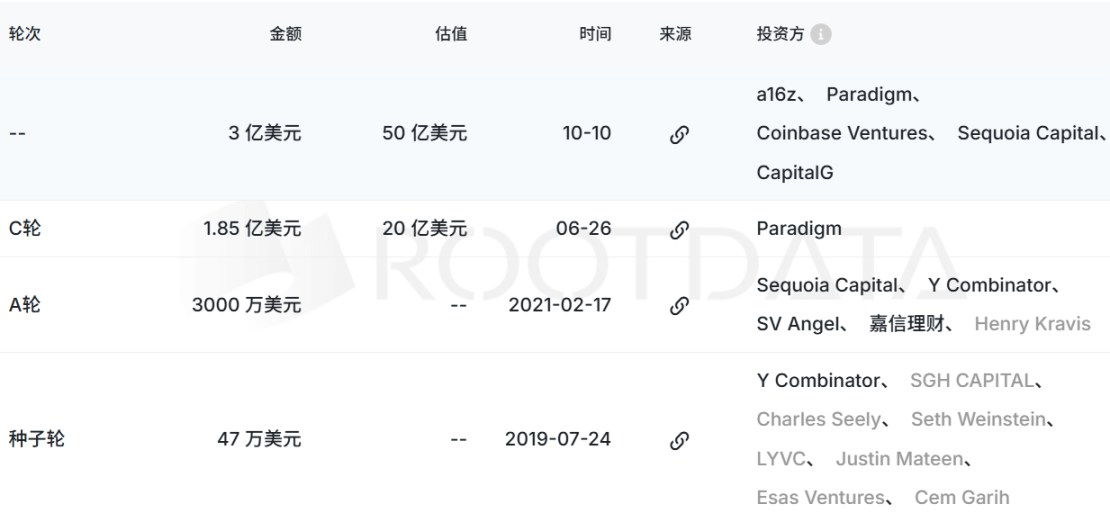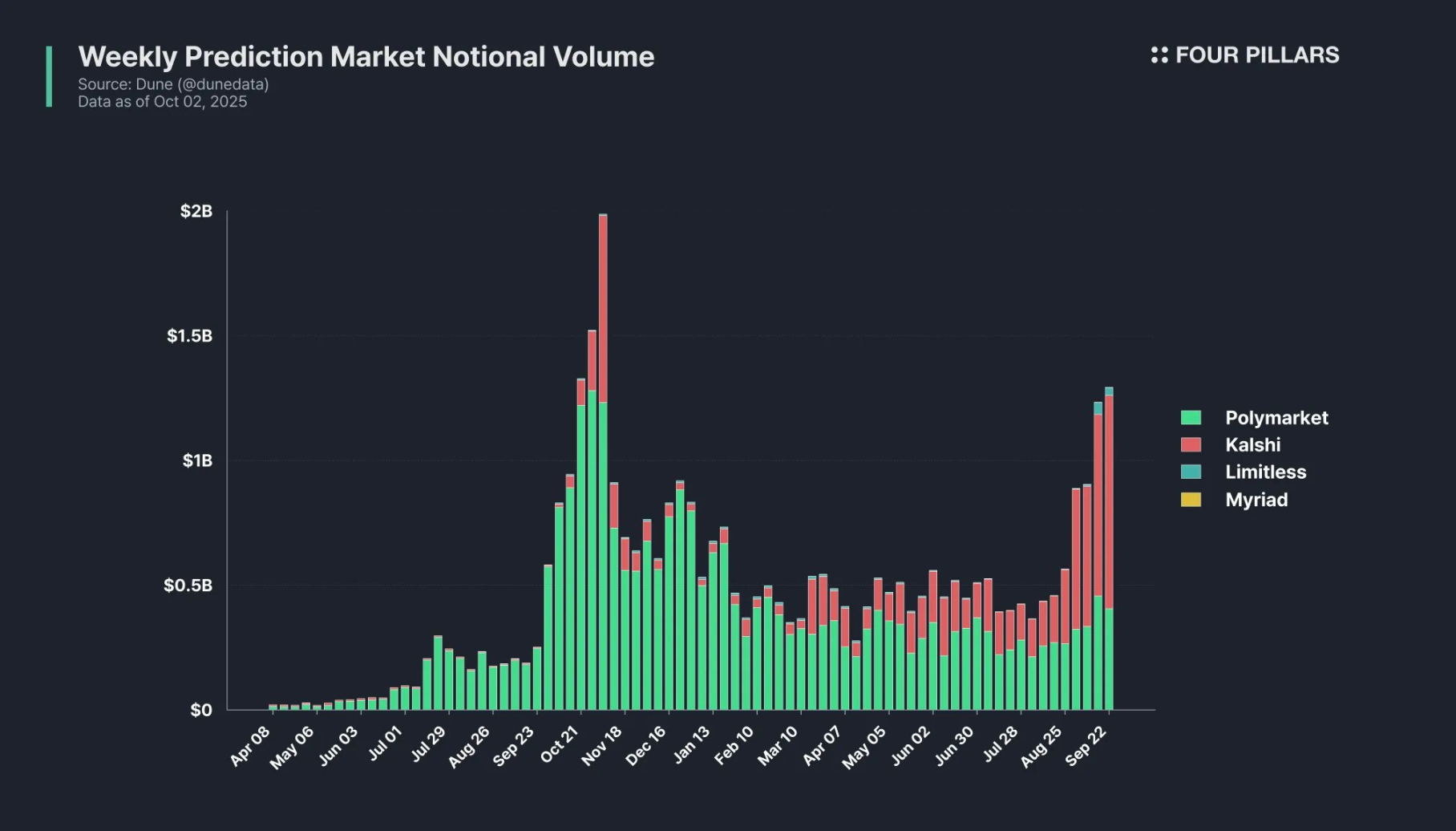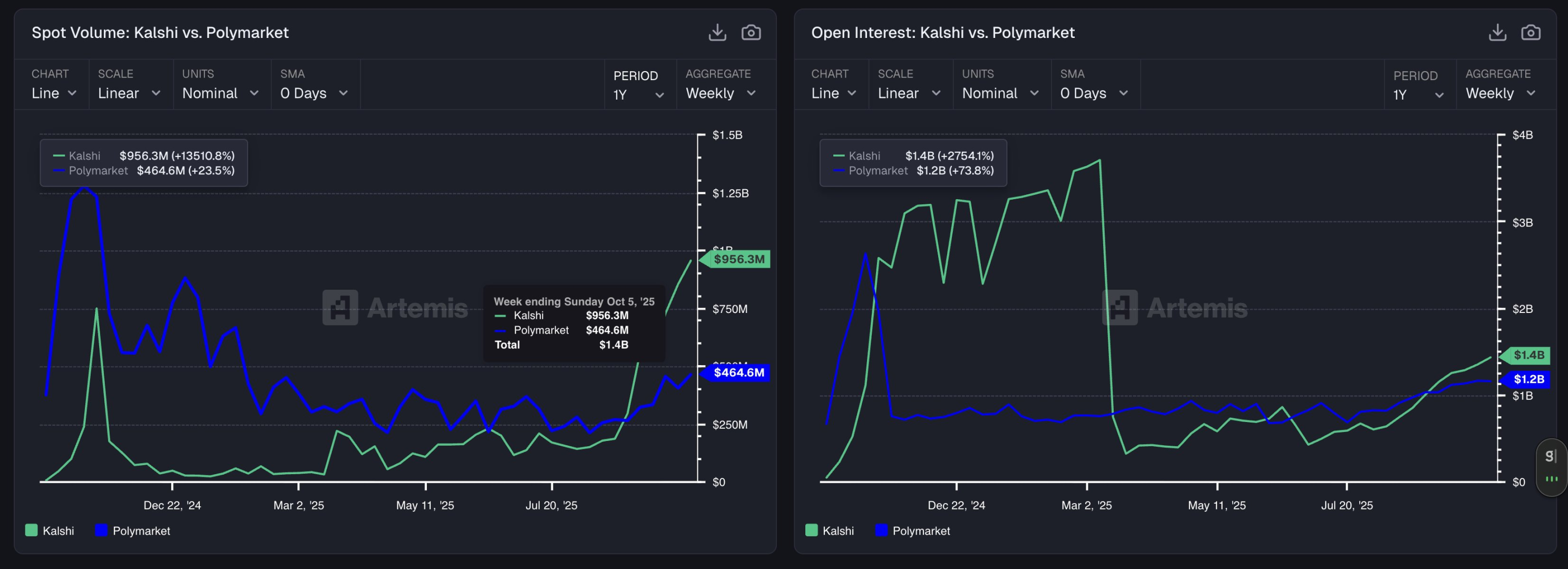At the intersection of crypto and finance, prediction markets are becoming the next billion-dollar industry. On October 10th, Kalshi, a US-based regulated prediction market platform, completed a funding round exceeding $300 million, boosting its valuation to $5 billion. The round was led by Sequoia Capital and a16z, with participation from existing investors such as Paradigm. Kalshi also plans to allow customers in over 140 countries to place bets on its website.
Just four months ago, Kalshi was valued at $2 billion in a $185 million round in June, a figure that has now doubled, reflecting investors' enthusiastic confidence in the prediction market.
Luxurious team and VC lineup
Kalshi was co-founded by Tarek Mansour and Luana Lopes Lara. Mansour, an MIT graduate and a veteran in quantitative trading, previously held senior management positions at the Chicago Mercantile Exchange (CME), specializing in derivatives pricing and risk management. Lara, with a background in Brazilian fintech, previously led emerging markets strategy at Morgan Stanley. The two are targeting the neglected field of "event contracts" in traditional finance—betting on the predictions of future events.

Unlike Polymarket's blockchain-native approach, Kalshi chose to build a compliant platform from scratch, securing regulatory approval from the Commodity Futures Trading Commission (CFTC) early on, becoming the first regulated prediction market in the United States. This "difficult but responsible path," as Alex Immerman, partner at a16z Growth Fund, put it, helped Kalshi stand out amidst the regulatory storm.
Kalshi's core competitiveness lies in its team. In addition to its founding duo, Kalshi has attracted numerous Wall Street elites and technical experts. Chief Technology Officer (CTO) Eli Levine joins from Google Cloud, where he led large-scale data infrastructure projects, ensuring the platform's low latency and high throughput. Product Head Sarah Chen joined from Coinbase, where she led Kalshi's expansion into sports and political markets, seamlessly integrating complex parlay bets.
Notably, Donald Trump Jr., Trump's eldest son, joined Kalshi's advisory board in January 2025. This son not only brings political insight but also contributes to the platform's explosive growth in the election market. In the 2024 US election, Kalshi's presidential victory predictions achieved an accuracy rate of 85%, far exceeding traditional polls. The team has grown to over 150 people, covering quantitative modeling, compliance, and user growth, with an average of over 10 years of industry experience. This hybrid "Wall Street + Silicon Valley" model has enabled Kalshi to lead in product iteration: expanding from single-event contracts to multi-dimensional markets such as sports, weather, and economic data, with an average daily active user base exceeding 100,000.
The stellar VC lineup behind this round highlights the strategic value of prediction markets. Sequoia Capital, a Silicon Valley legend whose portfolio includes Airbnb and Stripe, led this round and bet early on on Kalshi's regulatory advantages. Marc Andreessen, founder of a16z, a crypto-native fund, has publicly praised Kalshi for "reinventing event-driven finance." Paradigm, which previously led a $185 million round in June, added to its investment, bringing its total to over $200 million. Other investors include Coinbase Ventures and Bond Capital, the latter of which is led by former a16z partner Mary Meeker and focuses on data-driven platforms. Kalshi's total funding has reached approximately $591 million, spanning three rounds: a $15 million seed round in 2021 (led by SV Angel), a $50 million Series A round in 2023, and now, a Series D round.

Kalshi's competitor, Polymarket, was founded in 2020 by Shayne Coplan. It positions itself as a blockchain-native prediction market, leveraging the Polygon chain and allowing users to place bets directly with USDC. On October 7, 2025, Polymarket announced it had secured an investment of up to $2 billion from Intercontinental Exchange (ICE), the parent company of the New York Stock Exchange.
Comparison with Polymarket
Kalshi's fundraising is fueled by strong performance. Kalshi's liquidity pool boasts a depth and average slippage of less than 0.1%, significantly below the industry average. Financially, the platform is profitable, with revenue exceeding $200 million in the first half of 2025, primarily driven by 0.5%-1% transaction fees. According to dune data, Kalshi's weekly forecast market turnover has rapidly risen from a follower to surpass Polymarket.

Kalshi crushes Polymarket in multiple dimensions. First, regulatory compliance: Kalshi is a CFTC Designated Contract Market (DCM), meaning US users don't need a VPN. Polymarket, which lost US traffic due to the 2022 ban and relied solely on overseas users, recently returned to the US through the acquisition of QCX LLC, though the exact launch date remains unknown.
Secondly, regarding user experience: Kalshi supports US dollar deposits and simplifies KYC, making it suitable for institutions. Polymarket relies on crypto wallets, resulting in higher gas fees and volatility. Regarding market coverage: Kalshi holds the majority of the US market share, but its share in other regions is relatively small, with a richer selection of sports and economic contracts. Polymarket focuses on politics and crypto events, but its US penetration remains low due to compliance concerns.
The latest data from polymarketanalytics shows that although Kalshi's total trading volume is only US$400 million, far behind Polymarket, it is ahead of Polymarket in the total number of predicted markets and total holdings.

If we narrow the timeframe, we can see Kalshi's rapid growth. Data monitored by Artemis shows that in the past year, Kalshi's market transaction volume soared 135 times to US$956.3 million, while Polymarket's was only US$464.6 million.

The latest data from The Block shows that the number of Kalshi's daily active prediction markets has hit a record high, rising to more than 75,000.

It's worth noting that Kalshi topped the Apple App Store's free chart on November 6, 2024, surpassing Polymarket. In October of this year, John Wang, Kalshi's head of cryptocurrency, told The Block at the Token2049 conference in Singapore that Kalshi would appear on "every major crypto app and exchange" within the next 12 months.
The founder of Polymarket hinted at the launch of a POLY token in a tweet, raising concerns about whether Kalshi would follow suit. While rumors have speculated that the company might explore tokenization in the future, no official announcements or funding announcements have mentioned a token launch.







